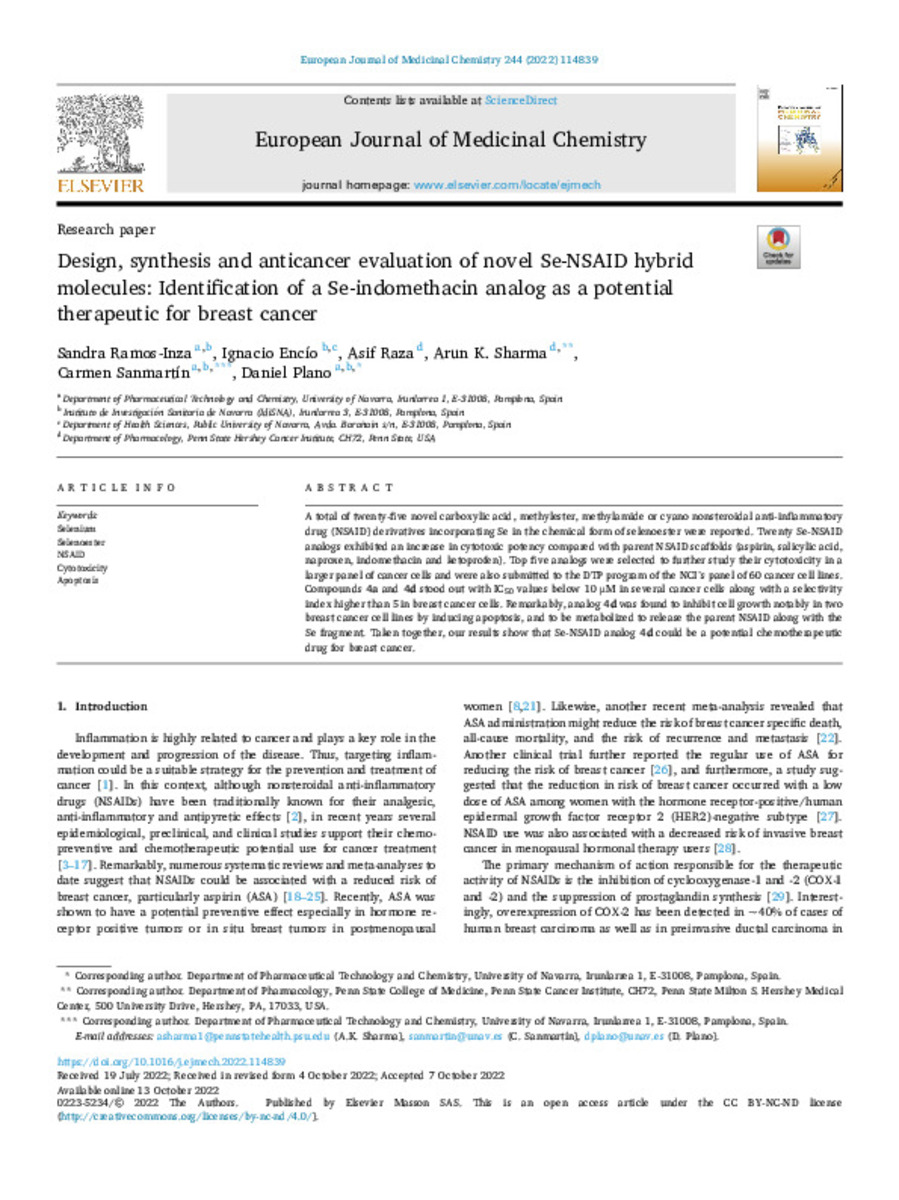Design, synthesis and anticancer evaluation of novel Se-NSAID hybrid molecules: Identification of a Se-indomethacin analog as a potential therapeutic for breast cancer
Keywords:
Selenium
Selenoester
NSAID
Cytotoxicity
Apoptosis
Note:
This is an open access article under the CC BY-NC-ND license
Citation:
Ramos-Inza, S. (Sandra); Encío, I. (Ignacio); Raza, A. (Asif); et al. "Design, synthesis and anticancer evaluation of novel Se-NSAID hybrid molecules: Identification of a Se-indomethacin analog as a potential therapeutic for breast cancer". European Journal of Medicinal Chemistry. 244, 2022, 114839
Statistics and impact
0 citas en

Items in Dadun are protected by copyright, with all rights reserved, unless otherwise indicated.







